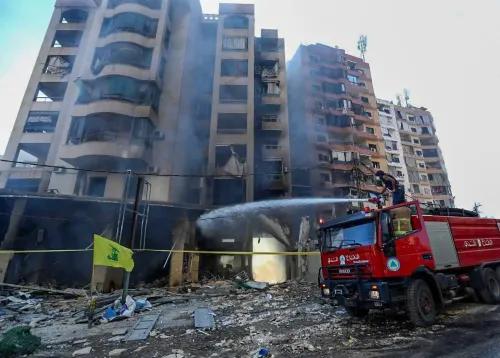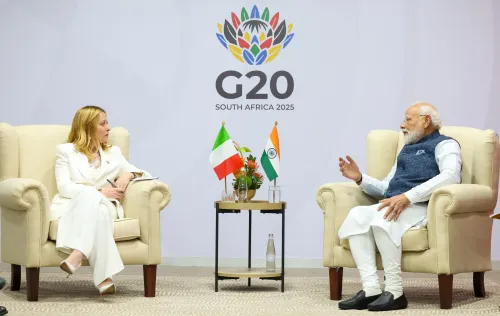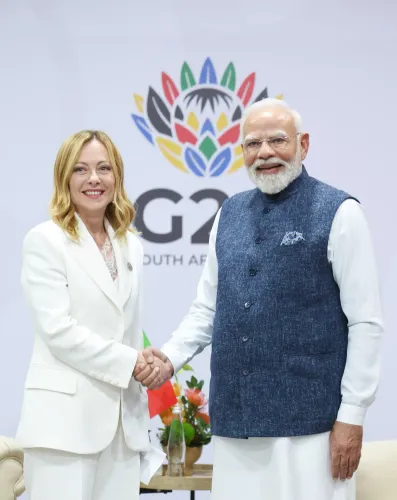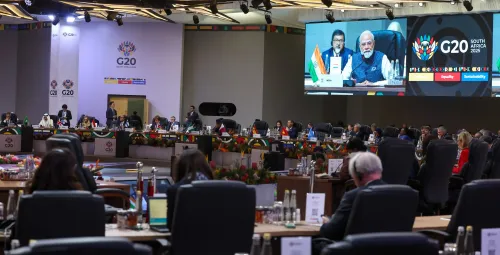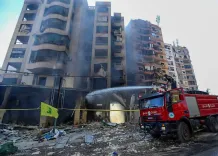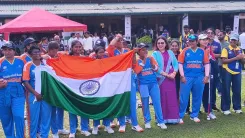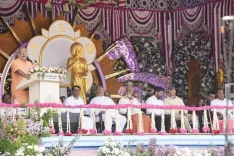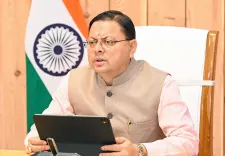What Did PM Modi and South African Prez Ramaphosa Discuss in Johannesburg?
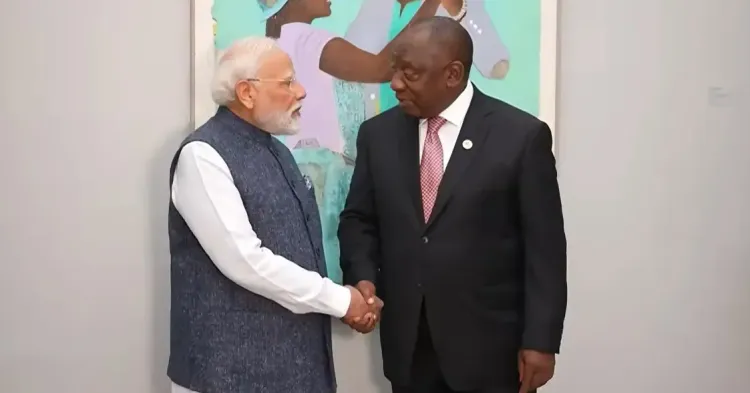
Synopsis
Key Takeaways
- Stronger bilateral relations between India and South Africa.
- Focus on security cooperation and people-to-people connections.
- Advocacy for a human-centric growth approach.
- Proposals for disaster risk reduction and sustainability initiatives.
- Creation of a G20 Open Satellite Data Partnership.
Johannesburg, Nov 23 (NationPress) Prime Minister Narendra Modi engaged in discussions with President Cyril Ramaphosa of South Africa during the G20 Leaders Summit held in Johannesburg on Sunday.
Present at the meeting were External Affairs Minister S. Jaishankar, MEA Secretary (Economic Relations) Sudhakar Dalela, among other officials.
This meeting aimed to not only evaluate the existing bilateral relations but also explore potential new areas of collaboration such as security cooperation and enhancing people-to-people connections.
On Saturday, President Ramaphosa extended a warm welcome to PM Modi upon his arrival for the G20 Leaders' Summit at Nasrec in Johannesburg.
During his addresses on the opening day, PM Modi emphasized the necessity for strengthened global collaboration, enhancing disaster resilience, and promoting sustainable development.
In a series of updates on X, and according to detailed statements released by the Prime Minister's Office, PM Modi advocated for a human-centric approach to growth, urging the coalition to adopt new development metrics that harmonize progress with planetary health.
In his posts, he noted that the second session of the Summit was centered around constructing a resilient world in the face of disasters and climate change, ensuring equitable energy transitions, and fortifying global food systems. He highlighted that India is proactively addressing all these aspects, working towards a future that is both inclusive and human-centric.
Reiterating India's longstanding position that significant global challenges necessitate coordinated global responses, PM Modi remarked that this belief propelled India's initiative to form the Disaster Risk Reduction Working Group during its G20 Presidency. He contended that disaster management should transition from a purely response-centric model to a development-centric one, referencing the Coalition for Disaster Resilient Infrastructure as an illustrative example.
Furthermore, he proposed the establishment of a G20 Open Satellite Data Partnership, aimed at enhancing access to satellite data and analysis from G20 space agencies for developing nations, particularly in the Global South. He underscored that better access to space-based tools would support nations in sectors such as agriculture, fisheries, and disaster management.
Reaffirming India's dedication to sustainability and clean energy, PM Modi introduced the G20 Critical Minerals Circularity Initiative, aimed at fostering recycling, urban mining, second-life batteries, and related innovations to secure supply chains and promote cleaner developmental pathways.

